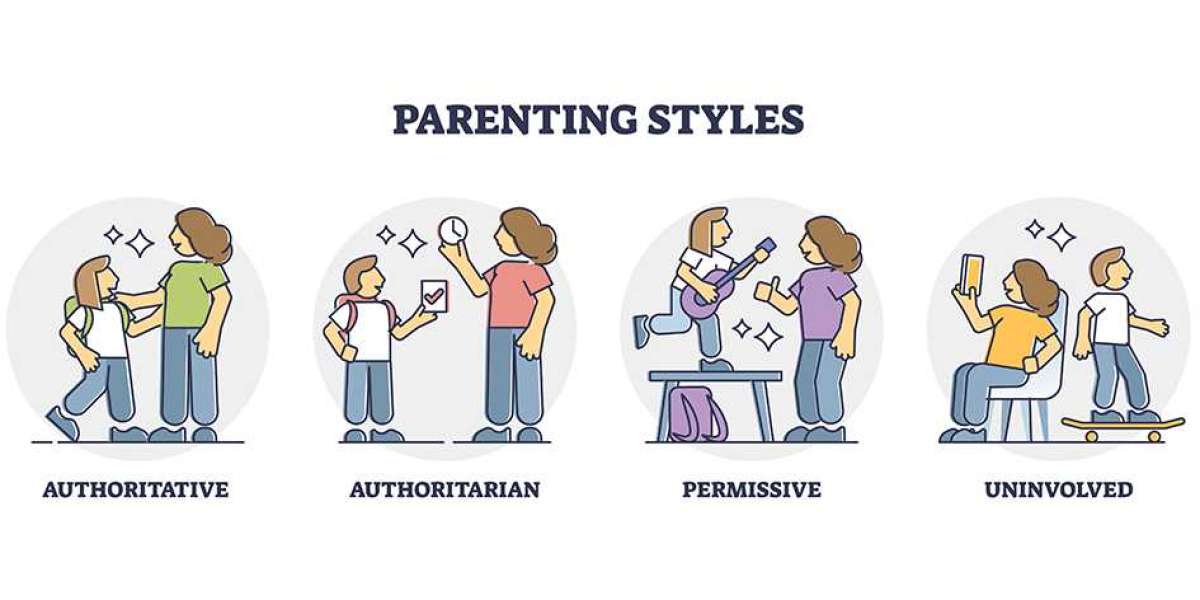Introduction
Parenting is one of the most profound and rewarding experiences a person can embark upon. Yet, it often comes with its unique set of challenges, especially in today's fast-paced and ever-evolving world. This article explores the essential aspects of parenting, focusing on how to nurture resilience and empathy in children while navigating the complexities of modern life.
Understanding Parenting Styles
Parenting styles significantly influence a child's development. Research identifies four primary styles: authoritative, authoritarian, permissive, and uninvolved.
- Authoritative Parenting: This approach is characterized by a balanced mix of support and structure. Authoritative parents set clear expectations while being responsive to their children’s needs. Studies show that children raised in this environment tend to develop high self-esteem and better social skills.
- Authoritarian Parenting: This style is strict and often lacks emotional support. Authoritarian parents enforce rules without providing warmth or understanding, which can lead to children feeling less competent and less confident in expressing their emotions.
- Permissive Parenting: Permissive parents are lenient and avoid setting firm boundaries. While this can foster creativity, it may also result in children struggling with self-discipline and responsibility.
- Uninvolved Parenting: This style is marked by a lack of responsiveness to a child's needs. Children raised in uninvolved environments may face emotional, social, and cognitive challenges.
Nurturing Resilience
Resilience is the ability to bounce back from adversity. It is a crucial trait for children to develop in today's world, which can be unpredictable and sometimes harsh. Here are some strategies to help cultivate resilience in children:
- Modeling Resilience: Parents should demonstrate their coping mechanisms and problem-solving skills. When children observe their parents navigating challenges with a positive attitude, they learn to approach difficulties in the same way.
- Encouraging Independence: Allowing children to take on age-appropriate challenges fosters independence. Whether it's completing homework without assistance or making small decisions, these experiences teach children to trust themselves and their abilities.
- Promoting Problem-Solving Skills: Encourage children to think critically and find solutions to their problems. This could involve guiding them through scenarios rather than providing immediate answers. Ask open-ended questions that prompt them to analyze the situation and brainstorm solutions.
- Providing a Supportive Environment: Create a safe space for children to express their emotions. Acknowledge their feelings, listen actively, and validate their experiences. This emotional support is crucial in helping them process setbacks and learn from mistakes.
- Setting Realistic Goals: Help children set achievable goals and celebrate their accomplishments, no matter how small. This practice reinforces the idea that effort leads to success and builds a sense of agency.
Fostering Empathy
Empathy is the ability to understand and share the feelings of others. In a world that often prioritizes individualism, nurturing empathy in children is more important than ever. Here are ways to promote empathy:
- Model Empathetic Behavior: Children learn by observing their parents. Demonstrate empathy in your interactions, whether with family, friends, or even strangers. Discuss your feelings and thoughts about various situations to help them understand different perspectives.
- Encouraging Perspective-Taking: Teach children to consider others' feelings and viewpoints. Engage in discussions about different scenarios and ask questions like, "How do you think they felt?" This practice helps children learn to empathize with others.
- Incorporating Literature: Reading books that explore complex emotions and diverse experiences can deepen children's understanding of empathy. Discuss the characters' feelings and motivations, encouraging children to relate those emotions to real-life situations.
- Promoting Acts of Kindness: Encourage children to engage in acts of kindness, whether volunteering, helping a neighbor, or simply showing appreciation. These activities reinforce the idea that their actions can positively impact others.
- Creating a Diverse Environment: Expose children to different cultures, backgrounds, and lifestyles. This exposure fosters understanding and appreciation for diversity, broadening their worldview and enhancing their empathetic capabilities.
Navigating Challenges in Modern Parenting
The digital age presents unique challenges for parents. Technology can be a double-edged sword, offering educational opportunities but also exposing children to potential dangers. Here are some strategies for navigating these challenges:
- Establishing Boundaries: Set clear boundaries around screen time and technology use. Encourage children to engage in outdoor activities, creative play, and family time, balancing their digital lives with real-world experiences.
- Open Communication About Online Safety: Discuss the importance of online privacy and safety. Teach children about responsible internet usage, recognizing harmful content, and how to handle cyberbullying.
- Encouraging Critical Thinking: Help children analyze the information they consume online. Teach them to question sources and think critically about the content they encounter.
- Being Present: In a world filled with distractions, it's crucial for parents to be present. Set aside quality time for family activities, fostering connections that strengthen emotional bonds.
Conclusion
Parenting is a journey filled with both joy and challenges. By nurturing resilience and empathy in children, parents equip them with essential skills to navigate life's complexities. As we guide the next generation, let us remember that our actions speak louder than words. Modeling the values we wish to instill in our children will ultimately shape their character and influence their interactions in the world. Embrace the art of parenting with love, patience, and a commitment to fostering a brighter future for our children.








